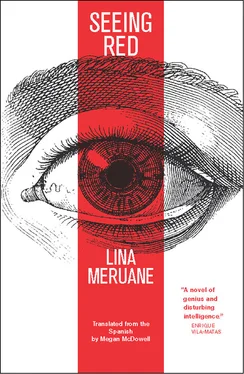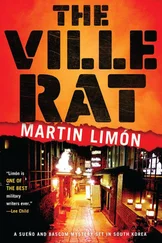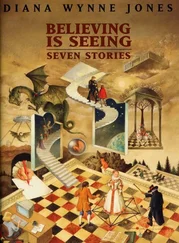Lina Meruane - Seeing Red
Здесь есть возможность читать онлайн «Lina Meruane - Seeing Red» весь текст электронной книги совершенно бесплатно (целиком полную версию без сокращений). В некоторых случаях можно слушать аудио, скачать через торрент в формате fb2 и присутствует краткое содержание. Год выпуска: 2016, Издательство: Deep Vellum Publishing, Жанр: Современная проза, на английском языке. Описание произведения, (предисловие) а так же отзывы посетителей доступны на портале библиотеки ЛибКат.
- Название:Seeing Red
- Автор:
- Издательство:Deep Vellum Publishing
- Жанр:
- Год:2016
- ISBN:нет данных
- Рейтинг книги:3 / 5. Голосов: 1
-
Избранное:Добавить в избранное
- Отзывы:
-
Ваша оценка:
- 60
- 1
- 2
- 3
- 4
- 5
Seeing Red: краткое содержание, описание и аннотация
Предлагаем к чтению аннотацию, описание, краткое содержание или предисловие (зависит от того, что написал сам автор книги «Seeing Red»). Если вы не нашли необходимую информацию о книге — напишите в комментариях, мы постараемся отыскать её.
This powerful, profound autobiographical novel describes a young Chilean writer recently relocated to New York for doctoral work who suffers a stroke, leaving her blind and increasingly dependent on those closest to her. Fiction and autobiography intertwine in an intense, visceral, and caustic novel about the relation between the body, illness, science, and human relationships.
Lina Meruane
Seeing Red — читать онлайн бесплатно полную книгу (весь текст) целиком
Ниже представлен текст книги, разбитый по страницам. Система сохранения места последней прочитанной страницы, позволяет с удобством читать онлайн бесплатно книгу «Seeing Red», без необходимости каждый раз заново искать на чём Вы остановились. Поставьте закладку, и сможете в любой момент перейти на страницу, на которой закончили чтение.
Интервал:
Закладка:
my mother’s other
That night, my mother left for the airport: her patients were clamoring for her return while that daughter who wanted to stop being a daughter was waiting impatiently for her to leave. Are you going to be ok? asked my mother, assuming my father’s voice. Are you going to be ok? embracing me but trying to distance herself. The taxi was waiting by the sidewalk. You’re going to be ok, she repeated, somewhere between an affirmation and a question. My head nodded, lolling badly guillotined from my neck. My hands supported it. My mother trembled, while the doctor part of her demanded she get hold of herself, dry her tears on the sleeve of her blouse, not be late for her plane. We have to go, my mother’s other was saying, right now; and yes, I thought, both of you go, but especially the doctor you. But my mother closed up like a lock while the other nudged her away from me. She was doubting her decision to leave, my mother, and she still refused to do it for a few more minutes. She fought with herself to keep the other from speculating on what could happen if she left, because the other her was National Champion in Pessimism. If she were to listen, my mother, to the suspicions of the doctor’s bleak brain, she would never be able to let me go. No matter how loudly her responsibilities summoned her. Her gravely ill kids and their mothers. Because although she and her other dissented and argued, they always agreed when it came to starring in family tragedies. I’ll be ok, mom, you can leave, I insisted, but she squeezed me tighter and when she did I felt, in the wire cage that my ribs had become, how the two of them twisted and struggled. Her bones crunched against mine, her extremities bent, out of proportion. The doctor was still fighting to get away, while my mother clutched me close. And although the sweaty heat of that body in double movement brought on in me a certain aversion and a bit of mistrust, there was also something incomprehensible that kept me from letting her go. The three of us were tangled up in the cord of illness, immersed, all three, in a sticky and amniotic fluid that threatened to drown us. Ignacio came up from behind to impose order on our council. It’s time, he said, not offering my mother any option but escape. The luggage is in the trunk, he rushed her along, and the taxi meter is running. The driver was smoking comfortably behind the wheel, very close to us; I could smell the burning tobacco and even his tension. Dear, my mother whispered falteringly, blowing her nose on a tissue rescued from a pocket. Dear, as if in secret, if I could, my dear, and this she said alone, as my mother and no one else: daughter, if I could, I’d give you my eyes. I’d pull them out right here in the street, I’d be delighted for you to have them. I’m old, I’ve gotten enough use out of them. I hear Ignacio in the background talking to the taxi driver, telling him we were almost ready, and I feel chastised, my head hanging between my shoulders, not knowing what I should say, how to reply, other than to thank her slowly and move away from her suffocating presence. Thanks, but there’s no need, I’m going to be fine, sensing in that instant that the doctor in my mother adjusted her glasses and raised her eyebrows and whispered, evilly, how could you think of giving your eyes to anyone, especially this one who doesn’t even know how to take care of them. The doctor in my mother reproved her: what would you see your patients with? But I wasn’t interested in hearing the two of them argue or criticize each other, the way they’d always done. I was planted on the cement, lingering over the image of my mother plucking out one eye with her long painted nails, and then extracting the other. I was seeing those eyes before me, a bit yellowed now, not so white anymore, very round, attached to the empty cavity by a thick, bright red nerve that stretched and narrowed but didn’t break, and while my mother tried to snap it and I yelled formaldehyde! Someone! Formaldehyde! Because eyes are organs that don’t last long. Because eyes are the first organ to go bad. (I thought all this trying to stop thinking it, and then I remembered that formaldehyde is only good for preserving dead tissue.) Breaking the doctor’s rule, I straightened my neck and planted two kisses on my mother, one on each eyelid, and I left my lips there a moment longer than was appropriate for a daughter’s kiss. But that skin was so soft, the warmth so perfect, so tender and slight the movement in the sockets. My mother was no longer hugging me, she slackened her arms, said a friendly goodbye to Ignacio — goodbye, son, she said to him, and I heard her but I found myself thinking, suddenly heartbroken, that those eyes of hers were too fibrous. They were used eyes, worn out and even dilapidated from medicine, too-old eyes, and I pushed my mother toward the taxi door so she would finally leave. And as the car moved away I started to laugh, to laugh slowly, my neck slightly bent, my head conquered, my sight covered, imagining the fright I would give myself if I looked in the mirror with those senile pupils. Then I heard her brittle voice floating back to me as she fled, her voice coming out the window of the moving car, dear, shouted my operatic and visionary mother: my dear daughter, you can count on my eyes, they’re yours if you want them.
killing a little
Ignacio ended up with the hair-raising mission of separating my trimmed eyelashes, his fingers like pincers, of attending to my glassy or lifeless gaze, the iris distended in a black hole, the cornea perforated with three badly-sewn stitches and swollen around each pupil. Each eye inflated to the point of bursting, the constant itching of scabs under the skin. It was there that Ignacio had to apply various eyedrops, a series of unguents, and then clean the grease that seeped out along the edges when the eye finally closed, beaten by the mortal weight of the eyelids, patches, and cramps that moved down from my neck to my back. I’m hungry, I announced, while Ignacio washed, disgusted and dizzy and faint, his fingers, hands, nails, elbows, teeth. And though he didn’t feel like eating, we ordered sandwiches of bloody meat from the Cuban restaurant on the corner. To get our strength back, I insisted, so we don’t go to bed on an empty stomach. But it was another ordeal to eat without raising my head. Lower it, ordered Ignacio, now become the doctor’s sassy ventriloquist’s doll. You’re going to get cataracts, he said, losing patience, furious, livid, exhausted: my nurse. Lower it, he said in a martyr’s voice, and the consolation of food started to turn sour. It was hard to chew and dangerous to swallow with my head sunk down. It was impossible to talk without raising my face, my face that regularly defied the order and instinctively straightened to meet a gaze. Eyes never give up, I said. They always seek out other eyes, realizing that was the impulse I was obeying, but Ignacio refused to accept explanations. Lower it. I should speak to him only with words, not eyes. I should control my neck. I should please stop rocking, forward and back, in my chair. Ignoring my will, my mechanical body went on swinging like a pendulum; my head struggled to lift and my eyelids to open, and I scared Ignacio with my moth eyes full of light. Close them, said my nurse, queasy to his core, forcing down a bit of bread and a little water. Joder de dios, fucking christ, I can’t eat looking at you. Watching over me disturbed him, but neither could he rest at night, keeping vigil over my sleep: every movement of mine kept him from falling asleep. I crashed, defeated by every kind of discomfort and oblivious to the nocturnal position of my head, while Ignacio sat up and shook me to save me from myself. Turn over, you’re in a bad position, and he pushed me impatiently into the ideal pose for the bubbles. I didn’t remember anything of what happened at night, whether we argued or not, if we kissed or spat on each other, if we desired each other lying one curled around the other or me on his chest, if we killed each other a little more. Ignacio, a professional slave, got up at dawn and made himself a cup of black coffee. Coming and going in the morning fatigue, he said goodbye or got free of me with a slam of the door. It was impossible to keep Ignacio there, make him desist from his daily flight to the office, take him out of his classes, away from all those students who returned his gaze with ambitious insolence. Like a miser, he stashed away the spontaneous laughter and brainy conversations, his lips full of political science, debates, corruption, his lips forgetting me a little, while I rested too from his tantrums, and basked in the minuscule noises the house orchestrated in his absence. But Ignacio’s love was spiraling and elastic, it stretched without breaking and brought him back to my side. He called me to be sure I’d gotten out of bed, that I had found the lukewarm coffee on the table and the toast already spread with butter, the syringe at the ready. He wanted to know if I’d gone back down the hallway downcast, if I’d thrown myself face down on the mattress, and how I was keeping my mind entertained. I crawled around the house, giving vague lies as answers to everything or almost everything; yes, yes, I said, hauling around and supporting my punished head, yes standing in front of the refrigerator door, yes sticking a bored finger all the way to the bottom of the food containers, leaving a path of crumbs that later Ignacio — trailing the smell of the city, of open streets and old papers, a smell of happiness that soon dissolved — would have to sweep up. Mop. Gather or clean and scorn me and adore me, giving himself to my desires as if to a vice, without imposing deadlines, Ignacio, or conditions.
Читать дальшеИнтервал:
Закладка:
Похожие книги на «Seeing Red»
Представляем Вашему вниманию похожие книги на «Seeing Red» списком для выбора. Мы отобрали схожую по названию и смыслу литературу в надежде предоставить читателям больше вариантов отыскать новые, интересные, ещё непрочитанные произведения.
Обсуждение, отзывы о книге «Seeing Red» и просто собственные мнения читателей. Оставьте ваши комментарии, напишите, что Вы думаете о произведении, его смысле или главных героях. Укажите что конкретно понравилось, а что нет, и почему Вы так считаете.












